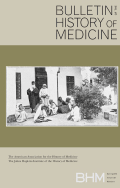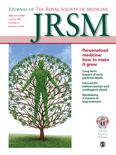
Dynamis
Scope & Guideline
Illuminating the Philosophical Underpinnings of Medical Practices
Introduction
Aims and Scopes
- Interdisciplinary Historical Research:
Dynamis emphasizes the historical development of medical practices, health policies, and the evolution of medical knowledge across various cultures and time periods. - Cultural and Gender Perspectives in Medicine:
The journal explores how cultural norms and gender roles influence medical practices, health care access, and the societal understanding of health and illness. - Ethics and Medical Controversies:
Dynamis addresses ethical dilemmas in medicine, including historical and contemporary debates surrounding medical practices, professional roles, and patient care. - Global Health Histories:
The journal covers health issues from a global perspective, investigating how historical narratives shape current health policies and practices in different regions. - Artifacts and Knowledge Production:
Dynamis examines the role of various artifacts, such as texts, technologies, and practices, in the production and dissemination of medical knowledge.
Trending and Emerging
- Health and Gender Studies:
There is a growing emphasis on the intersection of health and gender, examining how gender identities and roles impact health outcomes and medical practices. - Global Health and Epidemiology:
Recent publications increasingly address global health issues, particularly in relation to historical epidemiological transitions and their modern implications. - Material Culture and Medical Knowledge:
The exploration of material culture, including medical artifacts and their role in knowledge production, is gaining traction as researchers investigate how these elements shape health practices. - Crisis and Response in Medical History:
The examination of historical crises, such as pandemics and their socio-political responses, is emerging as a critical theme, drawing parallels to current global health challenges. - Ethics in Medical Practice:
The journal is increasingly focusing on the ethical dimensions of medical practice, particularly in relation to historical injustices and contemporary medical controversies.
Declining or Waning
- Traditional Medical Practices:
There has been a noticeable decrease in papers focusing solely on traditional or folk medical practices, suggesting a shift towards more contemporary and interdisciplinary approaches. - Narrowly Defined Historical Periods:
Research concentrating on specific historical periods, particularly those that do not connect to broader themes of modernity or globalization, appears to be waning. - Static Medical Ethics:
The dialogue around static ethical frameworks in medicine is less prevalent, as more dynamic and contextual analyses are favored.
Similar Journals

Early Science and Medicine
Advancing Interdisciplinary Dialogues in Science and MedicineEarly Science and Medicine is a renowned academic journal published by BRILL, dedicated to exploring the intersections between historical and medical studies. With a distinguished history since its inception in 1996, the journal caters to an interdisciplinary audience, encompassing vital aspects of History, History and Philosophy of Science, and Medicine. It enjoys commendable rankings, being in the Q2 quartile in History, among others, reflecting its significant contribution to these fields. The journal's editorial commitments aim to advance scholarly discussions on the development of medical practices, theories, and their historical contexts, making it an essential resource for researchers, professionals, and students alike. Although currently not open access, Early Science and Medicine offers comprehensive analyses and rich content that engage with and enrich our understanding of the complex relationship between science and medicine throughout history. For more information, you can find the journal at its esteemed address in Leiden, Netherlands.

Bezmialem Science
Bridging research and practice in medicine and health.Bezmialem Science is a pioneering open-access journal that has been making significant strides in the dissemination of scientific knowledge since its establishment in 2013. Published by GALENOS PUBL HOUSE, this journal is dedicated to enhancing the fields of medicine and health sciences, providing a platform for innovative research and comprehensive reviews that address contemporary challenges in these areas. With its ISSN 2148-2373, Bezmialem Science facilitates broad accessibility to its content, ensuring that researchers, students, and professionals across the globe can stay updated with the latest discoveries. The commitment to open access is paramount in promoting collaboration and knowledge exchange, making this journal an invaluable resource for anyone seeking to advance their understanding of healthcare and medical sciences. Additionally, Bezmialem Science is strategically positioned in Turkey, contributing to the increasing output of high-quality research from this region while engaging a global audience. As a beacon for impactful research, Bezmialem Science invites scholars to contribute their findings for the betterment of science and public health.

CENTAURUS
Cultivating Critical Perspectives on Scientific DevelopmentCENTAURUS is a prestigious journal dedicated to the History and Philosophy of Science, published by BREPOLS PUBL in the United States. With a storied history dating back to its inception in 1950, CENTAURUS has consistently provided a platform for critical engagement and scholarly discourse in the realm of scientific development and its philosophical implications. Recognized for its academic rigor, the journal holds a commendable Q2 ranking in the History and Philosophy of Science category for 2023, reflecting its substantial contribution to the field, as evidenced by its ranking in the top 11% of 223 journals in Scopus. Although it operates on a subscription-based model, the journal is a vital resource for researchers, professionals, and students seeking insightful analyses and discussions on the interplay between science and its philosophical dimensions. Published from Turnhout, Belgium, CENTAURUS continues to shape the landscape of scientific thought with its well-curated articles that examine over a decade's worth of scholarly contributions.

JOURNAL OF THE HISTORY OF MEDICINE AND ALLIED SCIENCES
Advancing Knowledge Through Historical PerspectivesJOURNAL OF THE HISTORY OF MEDICINE AND ALLIED SCIENCES is a prestigious academic journal published by Oxford University Press, focusing on the interdisciplinary study of the historical evolution of medicine and its related fields. Since its inception in 1946, this journal has been at the forefront of disseminating scholarly research that bridges history and contemporary medical practices. With an impressive Q1 ranking in History and a dedicated readership comprised of researchers, professionals, and students, it serves as a vital resource to enhance understanding of the historical contexts that shape modern healthcare. Although categorized in Q4 in Geriatrics and Gerontology, the journal's contributions are invaluable for fostering discussions on the development and implications of medical practices over time. The journal does not offer Open Access options, maintaining a traditional subscription model to support high-quality peer-reviewed research. Its commitment to advancing the field is reflected in its prominent position within the Scopus rankings, making it an essential platform for those engaged in the intersection of history and medicine.

Acta Medico-Historica Adriatica
Unveiling the Tapestry of Health CultureActa Medico-Historica Adriatica is a pivotal open-access journal dedicated to the interdisciplinary study of medical history and health culture, published by the Croatian Scientific Society for the History of Health Culture. Since its inception in 2003, the journal has served as a platform for scholars and researchers spanning various fields, including medicine, history, and cultural studies, to disseminate their findings and insights. Situated in Croatia, this journal has established a commendable profile, evidenced by its Q4 ranking in the Medicine (miscellaneous) category, as well as its position in the 22nd percentile among general medicine journals in Scopus ranking. The journal focuses on the convergence of contemporary medical practices with historical perspectives, facilitating a deeper understanding of how past events shape present health paradigms. With an annual publication schedule that continues through 2024, Acta Medico-Historica Adriatica is an essential resource for professionals, students, and researchers seeking to explore the rich tapestry of health history and culture in an accessible format.

BULLETIN OF THE HISTORY OF MEDICINE
Bridging Past Insights with Present PracticesBULLETIN OF THE HISTORY OF MEDICINE, published by Johns Hopkins University Press, stands as a vital resource in the field of medical history, bridging the gap between historical research and contemporary medical practices. With a robust history dating from 1945 to 2024, this esteemed journal aims to foster a deeper understanding of medicine's past, exploring how historical contexts have shaped medical ideas, practices, and institutions. The journal boasts an impressive Q1 categorization in History and ranks among the top quartiles in related fields, highlighting its impact and relevance in academia. Although it does not offer open access, the journal’s contributions are invaluable for researchers, educators, and students alike seeking to understand the intricate narratives that underpin modern medicine. With its focus on interdisciplinary scholarship, the BULLETIN OF THE HISTORY OF MEDICINE remains essential for those committed to uncovering the complexities of medical development through time.

Journal of Medical Ethics and History of Medicine
Advancing scholarly dialogue on medical ethics and historical perspectives.Journal of Medical Ethics and History of Medicine, published by Tehran University of Medical Sciences, serves as a vital platform for the dissemination of cutting-edge research in the interdisciplinary domains of medical ethics, history, and law. Since its inception in 2008 as an Open Access journal, it has facilitated global access to scholarly works, contributing significantly to discussions on ethical standards in medical practices and the historical context influencing contemporary medicine. With a commendable Q1 ranking in History and a notable Q2 rank in Law according to the 2023 category quartiles, this journal stands out in its commitment to academic excellence and research impact. Furthermore, its affiliation with leading institutions and robust indexing in Scopus highlight its reputation and encourage contributions from a diverse array of scholars. Researchers, professionals, and students are invited to engage with this journal’s content, which not only enriches the academic discourse but also promotes informed ethical practices in medicine.

JOURNAL OF THE ROYAL SOCIETY OF MEDICINE
Exploring Diverse Topics in Medicine and HealthcareJOURNAL OF THE ROYAL SOCIETY OF MEDICINE, published by SAGE PUBLICATIONS LTD, is a leading platform in the field of general medicine, committed to advancing medical knowledge since its inception in 1908. With an impressive impact factor and a ranking of #47 out of 636 in the Scopus database, it is positioned firmly within the top quartile (Q1) of Medicine (miscellaneous). This esteemed journal serves as a vital resource for researchers, medical professionals, and students, offering a wealth of high-quality articles that cover a diverse range of topics in healthcare and medical research. Although not currently open access, the journal's acclaimed content contributes significantly to the ongoing dialogue within the medical community, making it indispensable for anyone seeking to stay at the forefront of medical science. We invite you to explore the advancements and discussions published here, as they will shape the future of medicine and healthcare practices.

Korean Journal of Medical History
Cultivating Knowledge on the Evolution of Health and HealingThe Korean Journal of Medical History is a distinguished publication in the field of medical history, focusing on the interplay between medicine and cultural, social, and philosophical contexts within Korea and beyond. Published by the Korean Society for the History of Medicine, this journal has been an open-access platform since 1992, fostering accessibility for researchers and practitioners alike. With its ISSN 1225-505X, the journal seeks to contribute to a deeper understanding of the historical developments in medicine, offering valuable insights for scholars and students interested in the evolution of medical practices. The journal is categorized in Q4 in both the History and Philosophy of Science and Medicine (miscellaneous) as of 2023, placing it at a nascent yet significant position within the academic landscape. Although it currently holds modest Scopus ranks, the journal is pivotal for those exploring the historical narrative of medicine in South Korea. Researchers and students are encouraged to engage with the journal, contributing to its expanding archive of knowledge while enriching their own academic pursuits. Addressed from Yonsei University College of Medicine in Seoul, the journal's commitment to openness and scholarly communication plays a critical role in advancing the field of medical history.

Nuncius-Journal of the History of Science
Fostering Scholarly Dialogue on Scientific HeritageNuncius - Journal of the History of Science, published by BRILL, is a vital resource dedicated to the exploration and analysis of the intricate relationship between science and its historical context. Established with the goal of fostering scholarly discussion, this journal serves as a platform for researchers and historians to present their findings and interpretations regarding the evolution of scientific thought. With an impact factor reflective of its academic rigor and ranked in the Q3 category in the field of History and Philosophy of Science, it offers a rich archive of articles spanning converged years from 1986 to 2024. Nuncius encourages submissions that advance the understanding of science's impact on society, culture, and its philosophical underpinnings, making it a key reference for those engaged in the histories that define modern scientific inquiry. Situated in the scholarly landscape of the Netherlands, Nuncius remains an essential read for professionals, students, and academics seeking to deepen their knowledge in this significant field.